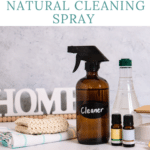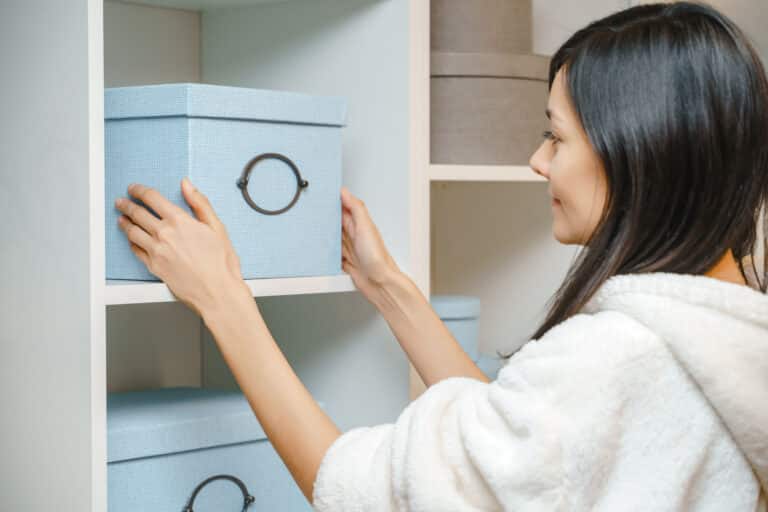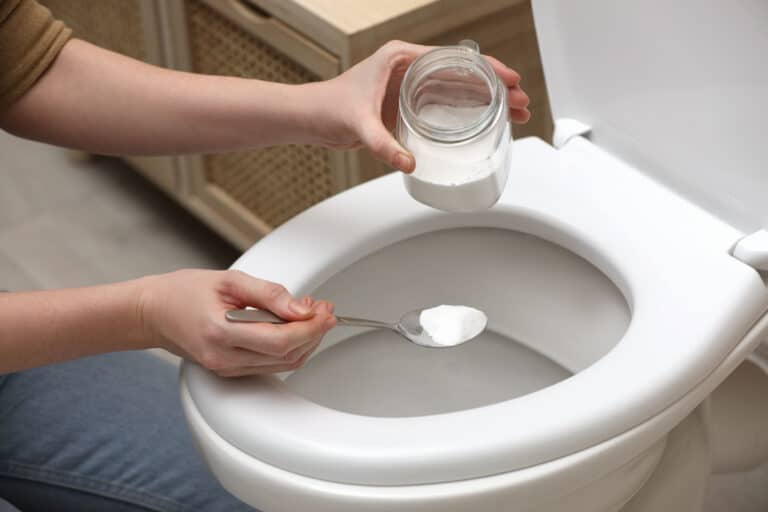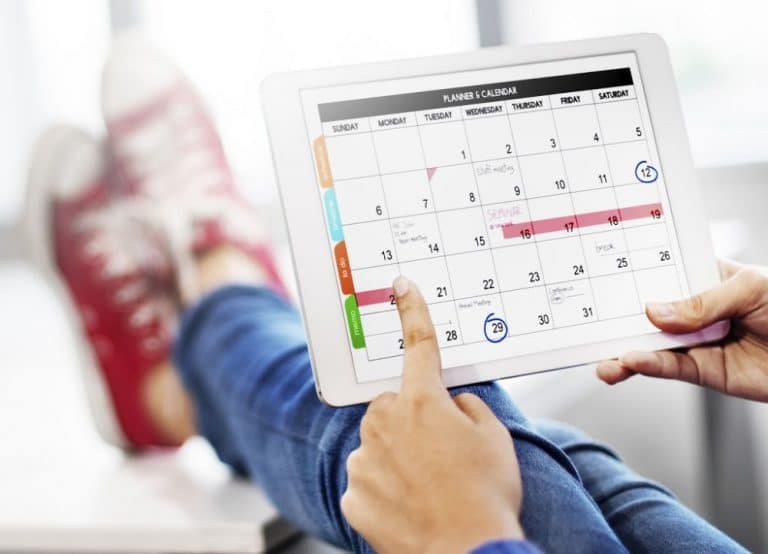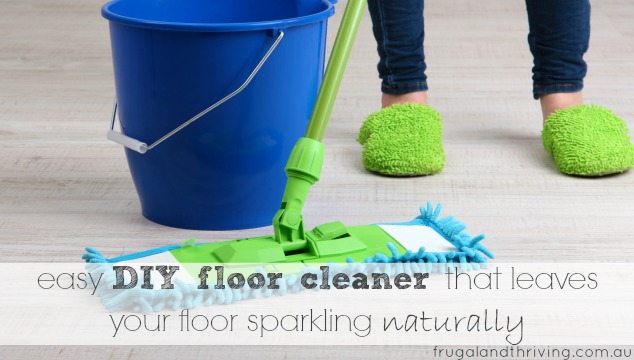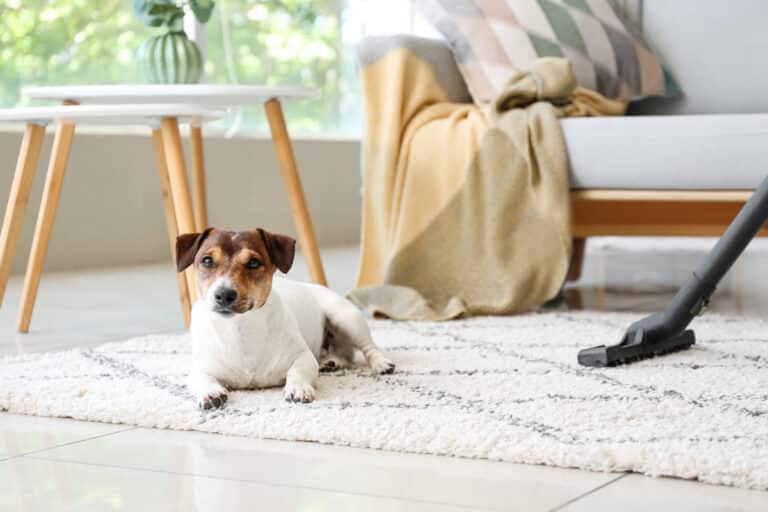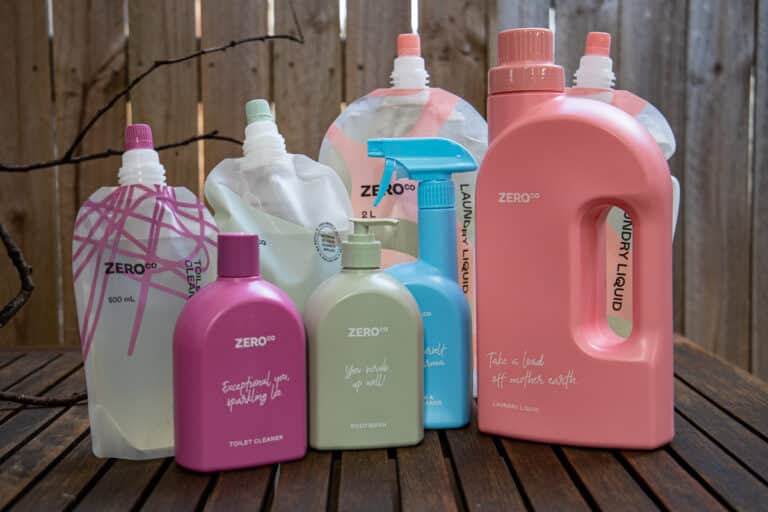Homemade Cleaning Spray – A Natural and Effective Surface Spray and All-Purpose Cleaner
This website may earn commissions from purchases made through links in this post.
Save money & reduce waste with an all-purpose, homemade cleaning spray. Great for removing grime & keeping surfaces fresh & clean.
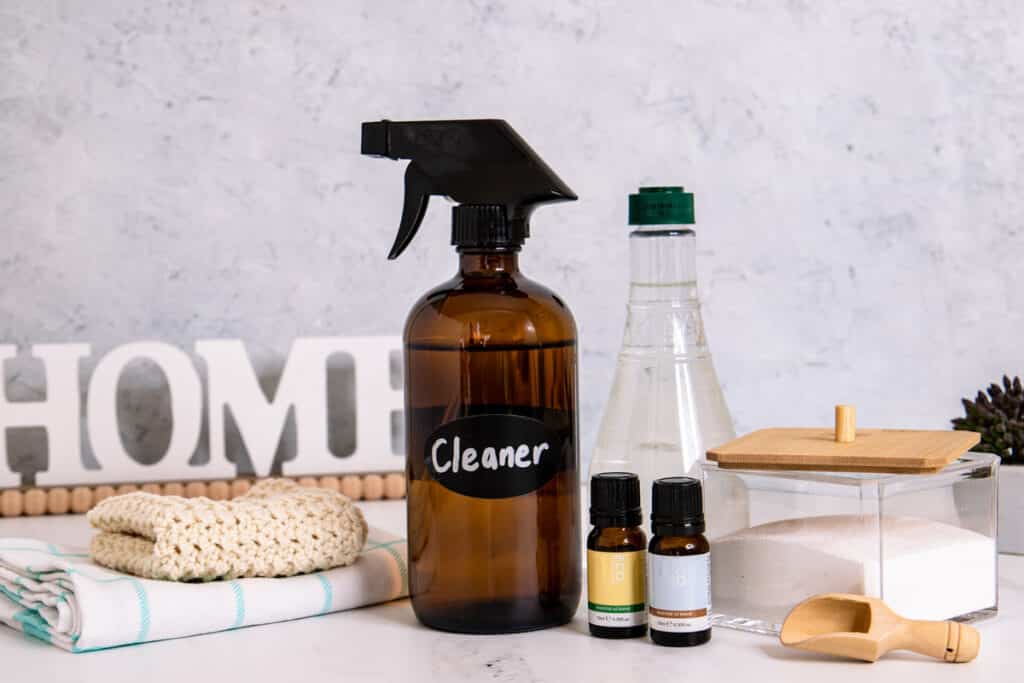
The recipe for this all-purpose cleaning spray is one I’ve been using for nearly twenty years. This sentence makes me feel the passing of the years, but it shows how reliable this clean spray recipe is.
I use it to clean almost everything, from the benches in the kitchen, the shower and bathroom, the toilet, spills on the floor, windows, and mirrors.
When cleaning, I combine the spray with homemade cleaning cloths or knitted dishcloths, and this further reduces the financial and environmental cost of cleaning the home because you’re not having to buy disposable products all the time.
4 Good Reasons to Make Homemade Cleaning Spray
Here’s why I like making my own cleaning spray:
1. It can save you a tonne of money. Homemade all-purpose cleaner costs just a few cents to make.
2. DIY cleaning spray uses common household ingredients, so it’s super easy to make.
3. Homemade cleaning products use fewer harsh chemicals than commercial sprays. The ingredients are biodegradable as well, so you’re pouring fewer chemicals into waterways.
4. You reuse the same bottle over and over, reducing the number of single-use plastic items in the household.
Ingredients for Homemade Cleaning Spray
There are a lot of different recipes for cleaning spray out there; this is the one I’ve found reliable for years. It uses three or four ingredients, depending on whether you choose to include essential oils. The ingredients are:
- Water
- Plain white vinegar
- Dishwashing detergent
- Essential oil (optional)
Water
Whether you make it yourself or buy it, cleaning spray is mostly water.
Not all brands list their ingredients because they don’t have to, but when they do, you’ll notice the first ingredient (listed in order of volume) is always water.
That’s why paying $3, $4, or $6 for cleaning spray kind of sucks.
To make your own cleaner, tap water is generally sufficient unless you have discoloured or hard tap water. Cost-effective alternatives to tap water include collected rainwater, home-filtered water (ie. filtered through a Britta filter or similar), or boiled water.
White Vinegar
Vinegar is around 5% acetic acid, and its acidity is what makes it a good cleaner by dissolving grease, grime, and dirt.
Vinegar also has anti-bacterial properties (see below) and can kill mould, making it a great all-round cleaner.
While there are many types of vinegar, plain white home brand vinegar is best because it is:
- Cheap
- Doesn’t have a colour, so doesn’t stain surfaces
- Is around 5% acetic acid
You can also buy double-strength white vinegar, which is about 8% acetic acid and doesn’t cost too much extra.
*There are some surfaces that you shouldn’t clean with vinegar – see below.
You might also like 21 Uses for Vinegar Around the Home
Dishwashing Liquid
Adding dish soap is optional, but it helps break down grease, making your homemade spray and wipe more effective, especially on kitchen benches and other grimy spots.
We tend to use an eco-friendly brand of dishwashing detergent like EcoStore, so our cleaning spray is mostly eco-friendly, but whatever dishwashing detergent you normally use is absolutely fine.
Essential Oils (Optional)
Some pure essential oils, if you have them, can increase the disinfectant properties of your cleaning spray, but they are an optional addition.
Also, they make your cleaner smell nice, which is an extra bonus, especially if you can’t stand the vinegary smell of homemade cleaner.
However, it’s important to note that many essential oils are toxic to pets and young children, so avoid using them around your pets and bubs. Also, a small number of people are allergic to different oils, which is something to be aware of.
Assuming you don’t need to worry about pets or allergies, some essential oils to consider include:
- Eucalyptus oil
- Tea tree oil
- Rosemary oil
- Thyme oil
- Oregano oil
- Lemon Myrtle oil
- Citrus Oils
Eucalyptus and tea tree oils are both inexpensive, can be purchased from the supermarket, and both have anti-bacterial properties, making them a great option if you want to add essential oils to your cleaner.
The other oils on this list are also purported to have anti-bacterial properties.
Citrus oils smell great, leaving a wonderful clean smell, and they are some of the least expensive oils, which is why they are a popular choice.
You can use just about anything you like; just be sure to patch-test your chosen oils first, as some oils can stain.
I currently get my essential oils from Eco Modern Essentials, an Australian business with quality essential oils and some beautiful blends. I often use their detox blend in my cleaning spray.
You might also like 14 Ways to Use Tea Tree Oil Around the Home.
Does Homemade All-Purpose Cleaner Smell Vinegary?
The short answer is yes; this cleaning spray can smell like vinegar. But…
If you use essential oil, it masks a lot of the vinegary smell.
And whether you use essential oil or not, the vinegar smell disappears very quickly as you wipe the surface and it dries.
I’m very sensitive to smells, but after all this time, I don’t smell the vinegar anymore.
Does DIY Surface Spray Disinfect Surfaces?
This homemade all-purpose cleaning spray is not a hospital-grade disinfectant, so they’re not going to have the same anti-bacterial properties as commercial anti-bacterial cleaners.
Vinegar and some essential oils have some anti-bacterial properties, but not to the food-safe level required in a commercial kitchen.
For example, experiments show that neat vinegar (not diluted) kills some bacteria and other pathogens (like the influenza virus or the bacteria that causes tuberculosis and some, but not all, food-borne bacteria). But vinegar is not as effective as commercial disinfectants, and if you want to meet food-safe sanitation standards, vinegar won’t cut it.
Adding anti-bacterial essential oils can enhance the disinfecting quality of your cleaning spray, but again, it still won’t meet the food-safe standards expected of a commercial kitchen.
Having said that, for most household uses, like cleaning general grime off benches or the shower, vinegar is more than sufficient.
It’s important to note that cleaning and disinfecting are two different activities, and you need to clean before you can sanitise.
Basically, you can’t sanitise something that still has crumbs and grime on it, so a dirty surface needs to be cleaned first. The scrubbing and wiping action itself removes a lot of bacteria along with the grime.
Then if you want to disinfect (but not commercial kitchen or hospital-grade disinfecting), spray the surface again with vinegar cleaner, leave it for 10 minutes, and come back and wipe the spray off with a clean cloth.
For disinfectant to work (and this goes for commercial cleaners, too), it needs to sit on the surface for at least 10 minutes.
How to Make and Use Homemade Cleaner
Making this cleaning spray couldn’t be more simple.
In your spray bottle, mix two parts vinegar to three parts water. Add in a small squirt of dishwashing liquid, and if using, 10-20 drops of your essential oil of choice.
Screw the nozzle back on, give the bottle a good shake, and you’re ready to spray and wipe!
You can buy a cheap plastic spray bottle from the hardware store or garden section of the supermarket. Avoid the super cheap coloured ones, they don’t tend to last very long.
An alternative to buying a spray bottle is to purchase a natural cleaner when it’s on sale and reuse the empty spray bottle once you’ve finished. When our old bottle died, we purchased the Organic Choice cleaner at half-price and then refilled the spray bottle with our own cleaning solution – the bottle lasted for years.
You can also buy a fancy glass spray bottle and use even less plastic. I picked mine up for a few dollars at Target.
How to Use Homemade Surface Spray – What Can You Clean?
Before using your homemade cleaner, patch-test your cleaner first in an inconspicuous area to make sure it doesn’t damage any surfaces. This goes with all cleaners, as commercial cleaners can damage surfaces too.
To clean your surfaces, start by dry brushing off any crumbs, dirt or large bits of grime if necessary. For example, when cleaning a bench or dining table, remove any food crumbs first.
Next, spray the surface. If there is any stuck-on grime, like tomato sauce that’s dried on a table (sometimes stuff gets missed), spray a little cleaning solution on the tough grime and let it sit and soak for a couple of minutes.
Wipe off with a clean, damp cloth, giving any sticky, grimy bits an extra rub.
For tougher marks or stains, a bit of bicarb sprinkled on first can help get surfaces clean.
Simply spray your surface, sprinkle on a little bicarb and wipe until the stains and tough grime is gone. A little bicarb goes a long way – don’t use too much otherwise, you’ll end up with a powdery residue.
What can you clean with this cleaner:
- Most benches (see below)
- Bathroom sink
- Kitchen sink
- The shower
- Windows and mirrors
- The toilet
- Walls
- Some furniture
- Tiled floors
What NOT to Clean with Vinegar-Based Surface Spray
You should not clean marble, granite, or stone with vinegar, as it can etch natural stone.
It is also best not to clean waxed flooring or hardwood floors with vinegar. All cleaners, including commercial cleaners, strip the varnish off our very old table, so always spot-test a patch before cleaning any furniture.
As mentioned above, while vinegar and essential oils have some anti-bacterial qualities, this cleaner is not a disinfectant and won’t meet food-safe standards.
Finally, vinegar should never be mixed with bleach, as this can give off toxic fumes.
Homemade All-Purpose Cleaner
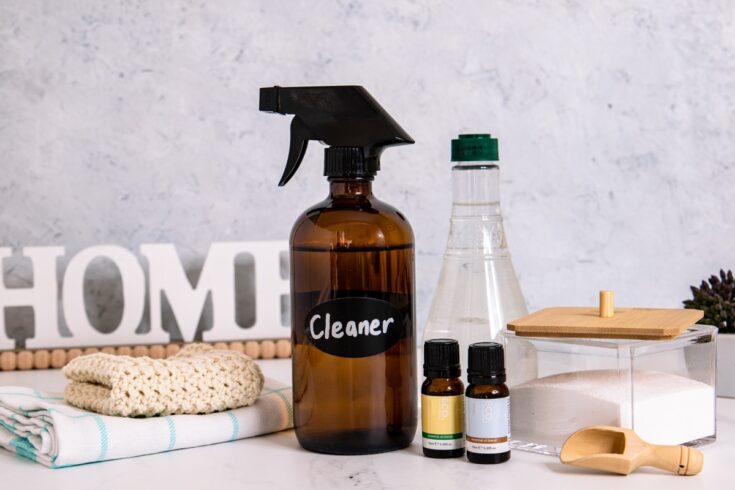
Make your own all-purpose cleaner with ingredients you have on hand in the kitchen
Materials
- 200ml plain white vinegar
- 300ml tap water
- a small squirt of dishwashing liquid
- 10-20 drops of tea tree oil or pure essential oil of choice (optional)
Tools
- 1 x 500ml spray bottle
Instructions
- Mix all ingredients in an empty spray bottle.
- Shake well.
Notes
You should not clean marble, granite, stone with vinegar as it can etch the natural stone. It is also best not to clean waxed flooring with vinegar as well.
Also, vinegar should never be mixed with bleach as this can give off toxic fumes.

